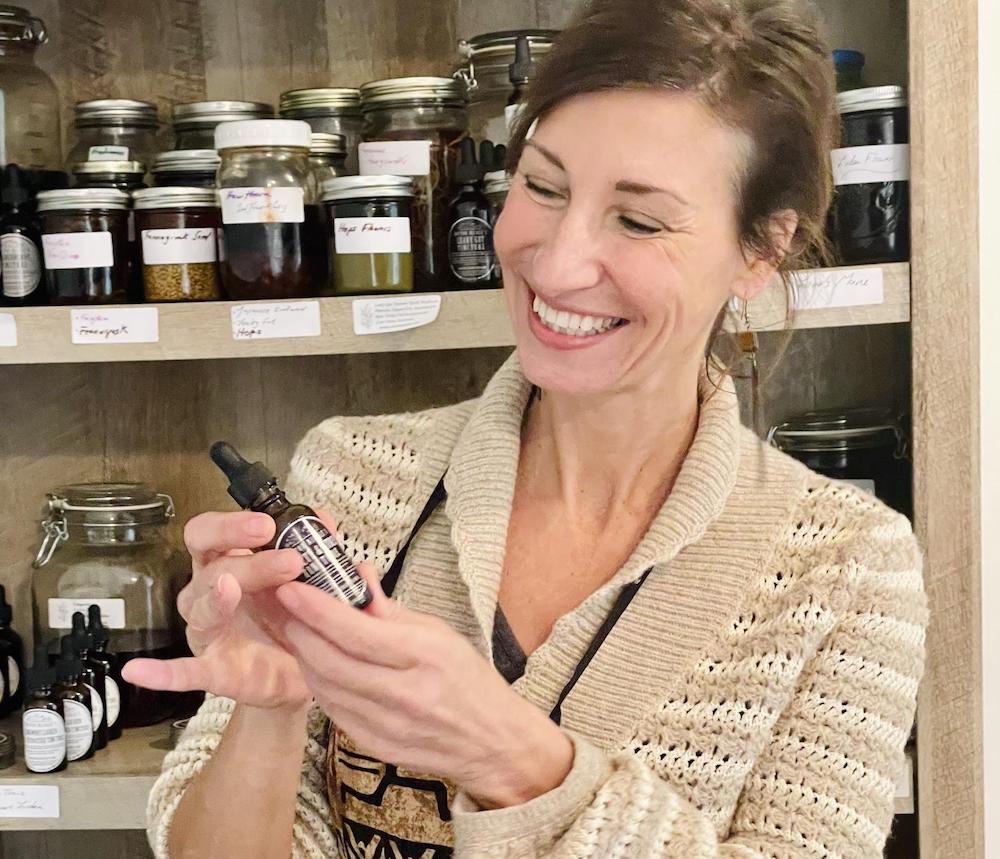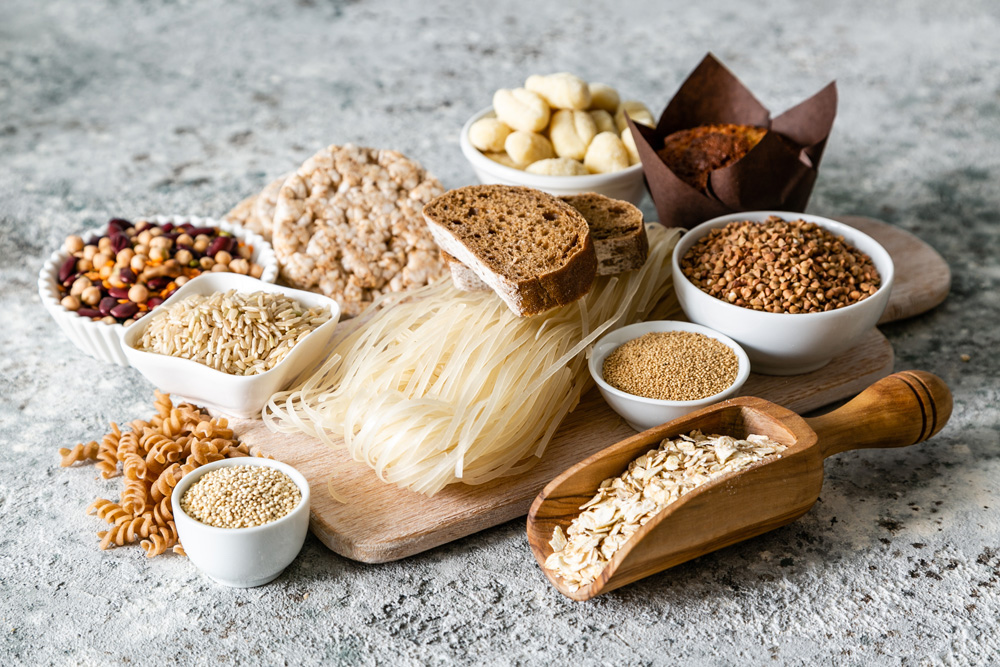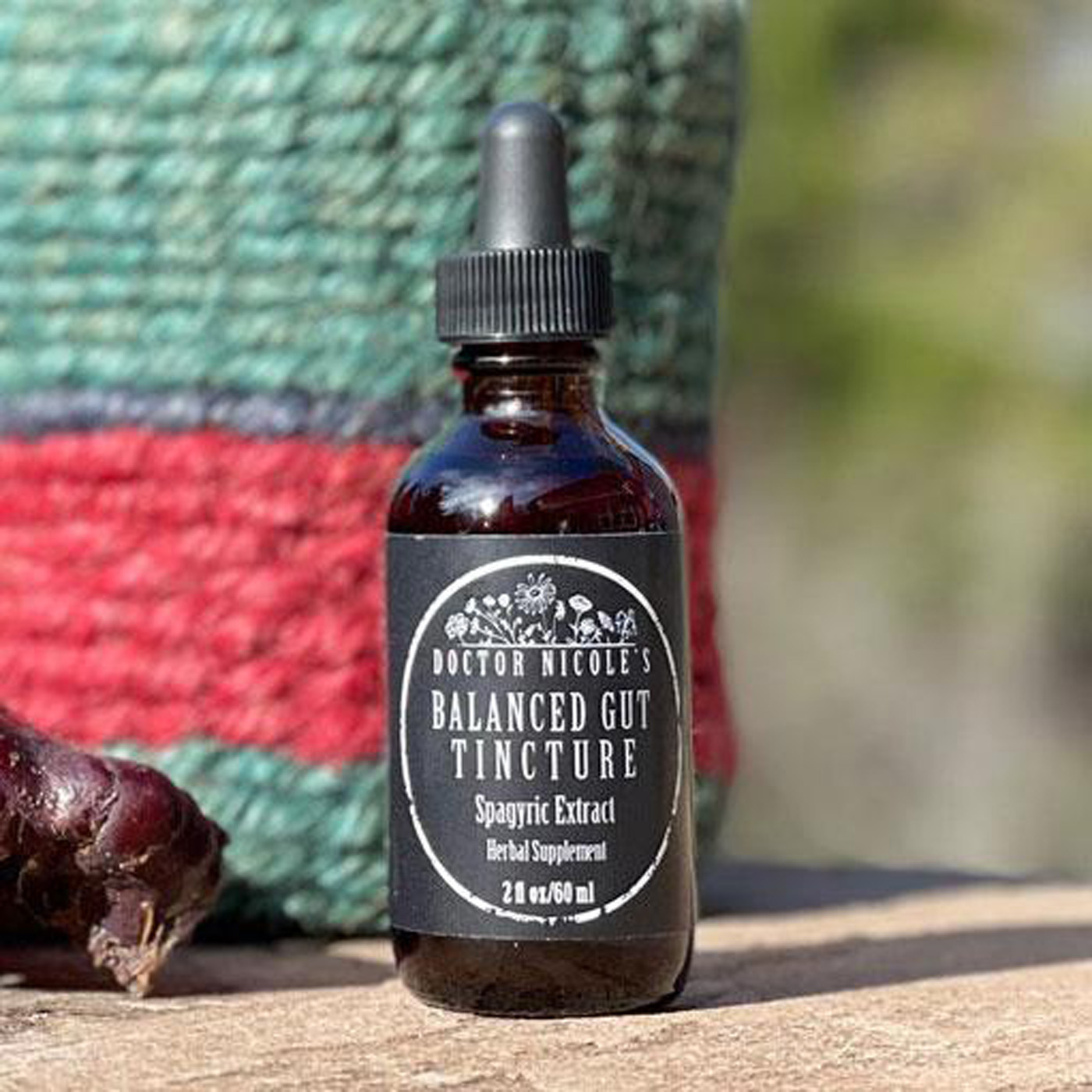Natural Health & Well-Being
I think it is safe to say most of those who follow me are concerned about maintaining or restoring their health and well-being through natural methods. Making good food choices, reducing stress, getting enough exercise, spending time in nature, and herbal remedies absolutely help in this regard. And one health trend that has taken hold over the past decade or so is to avoid gluten-containing foods as many have found they are sensitive to this protein in wheat, barley, rye, spelt, and triticale. As someone with multiple sclerosis, I have found steering clear of gluten is an important aspect of managing symptoms so as not to trigger autoimmune flares.
Because of this increasing sensitivity to gluten in the population, a variety of gluten-free products has hit the market, from bread and crackers to cookies, pasta, and more. Plant-based diets have also become exceedingly popular in recent years as people strive to address chronic health issues or avoid them altogether. If these diets are organic and embrace whole foods, they can certainly be beneficial and exceedingly healthy. But if you are eating conventional or even non-GMO foods, you may be unknowingly ingesting a toxin that severely damages the gut and overall health — namely, glyphosate.

Health Impacts of Glyphosate, Crop Desiccation, and Emulsifiers
You may be surprised to learn that many gluten-free products contain toxic glyphosate if the ingredients are not completely organic. Over the years, researchers have found this popular herbicide is not without risks as it can lead to antibiotic resistance, disruption of the estrogen pathway, impaired neurological function, and some forms of cancer.3,4 It also increases the production of pro-inflammatory cytokines in animal models and has been linked to the development of celiac disease and microbiome dysbiosis.4,5,6 These findings are alarming as the use of glyphosate has significantly increased over the last decade, particularly with the farming practice of desiccation.
A process of drying out crops to increase yield and suppress weeds, desiccation is an off-label use for glyphosate-containing herbicides. When the chemical is used for this purpose, it results in much higher concentrations of toxic residue compared to when the herbicide is traditionally applied in the spring or early summer. According to a 2020 Environmental Protection Agency (EPA) memo,2 GMO and non-GMO crops with the highest level of glyphosate in gluten-free and plant-based foods include:
- Dried Beans/Peas
- Potatoes
- Corn, field
- Oats
- Rice
- Sorghum
- Almonds
- Pecans
- Pistachios
- Walnuts
- Sugar Cane
General crops with high glyphosate use, including those with gluten:
- Carrots
- Sugar Beets
- Garlic
- Onions
- Beans (Snap, Bush, Pole, String)
- Peas (Fresh/Green/Sweet)
- Peppers
- Tomatoes
- Cucumbers
- Cantaloupes
- Pumpkins
- Squash
- Watermelons
- Grapefruit
- Lemons
- Oranges
- Tangerines
- Apples
- Pears
- Cherries
- Nectarines
- Plums
- Prunes
- Grapes, Raisin
- Grapes, Table
- Grapes, Wine
- Barley
While glyphosate cannot be directly sprayed on organic crops, it can spread from neighboring conventional farms via wind and rainwater. Trace amounts of this persistent chemical are oftentimes found with organic foods. Because of this, it is worth searching out organic products that are certified glyphosate-free.

Beyond glyphosate in gluten-free and plant-based foods, emulsifiers can also impact gut health. These additives are used extensively to improve texture, taste, and appeal of processed foods and include soy or sunflower lecithin; guar, gellen, locust bean, and xanthan gums; carrageenan; pectin; agar agar; propylene glycol esters (PGMS); carboxymethylcellulose (CMC); and polysorbates.
As I wrote in “Is This Common Food Additive the Cause of Your Weight Gain and Anxiety?“
“Generally, ingesting small amounts of an emulsifier is considered safe. However, for those who are sensitive it can cause digestive distress, such as cramping, diarrhea or constipation, and nausea. Carrageenan and synthetic emulsifiers tend to be the most problematic.
Moreover, research exploring the effect of emulsifiers on health may give us pause for thought the next time we reach for a convenience food. One study in humans found that gut bacteria “can be directly impacted by these commonly used food additives, in a manner that subsequently drives intestinal inflammation.”
Another study established that the consumption of dietary emulsifiers directly contributed to chronic inflammatory diseases, obesity/metabolic syndrome, and altered the microbiome in animal models.”

Supportive Herbal Remedies
Through my research over the years, I have come to suspect that almost everyone has at least some degree of damage to the gut through exposure to environmental toxins and additives in processed foods — whether organic or not. I believe leaky gut is one of the main reasons for the skyrocketing rate of food sensitivities we are seeing today. To help counteract and heal the damage, herbal medicines are exceptionally effective. This is why I developed our powerful Balanced Gut Blend with the following medicinal herbs:
Reishi Mushroom — Helps leaky gut through anti-inflammatory action. High in beneficial beta glucans, glycoproteins, and triterpenes to support gut health.
Turkey Tail Mushroom — Calms inflammation. Excellent source of prebiotics for encouraging a healthy microbiome by controlling the overgrowth of candida, while also feeding the “good” bacteria in the gut.
Plantain — Anti-inflammatory and soothes mucous membranes.
Slippery Elm and Marshmallow Root — Forms a protective layer that helps the gut to regenerate.
Lion’s Mane Mushroom — High in antioxidants that cool the inflammatory response.
“A friend ordered the balanced gut tincture for me after a lifetime of digestive issues and poor food choices. I’ve been using it twice per day every day for 2 months and the difference is incredible.
I haven’t had the deep hormonal acne along my jawline like I’ve had consistently for the last few years. I barely eat sweets anymore and I never crave them. Being free of the grips of sugar addiction in a sugar obsessed society has been a significant weight off my shoulders, one that I knew was there but couldn’t recognize.
I tell everyone I know to purchase these products and I am a HUGE advocate for the Balanced Gut Tincture.” -Torrie J.
Are you ready to boost gut health? Visit the apothecary today and experience the healing power of natural remedies for yourself!
Nicole Apelian
Nicole’s Apothecary Products in this Post
References
- “New report alleges ‘mass contamination’ of foods from use of glyphosate to dry crops” Elaine Watson, FoodNavigator USA, February 22, 2022. https://www.foodnavigator-usa.com/Article/2022/02/22/New-report-alleges-mass-contamination-of-foods-from-use-of-glyphosate-to-dry-crops
- “Usage Data for Glyphosate” United States Environmental Protection Agency, April 15, 2020. Retrieved on April 24, 2023 from, https://www3.epa.gov/pesticides/nas/glyphosate/appendix-1-4.pdf
- Van Bruggen, A. H. C., He, M. M., Shin, K., Mai, V., Jeong, K. C., Finckh, M. R., & Morris, J. G., Jr (2018). Environmental and health effects of the herbicide glyphosate. The Science of the total environment, 616-617, 255–268. https://doi.org/10.1016/j.scitotenv.2017.10.309
- Peillex, C., & Pelletier, M. (2020). The impact and toxicity of glyphosate and glyphosate-based herbicides on health and immunity. Journal of immunotoxicology, 17(1), 163–174. https://doi.org/10.1080/1547691X.2020.1804492
- Samsel, A., & Seneff, S. (2013). Glyphosate, pathways to modern diseases II: Celiac sprue and gluten intolerance. Interdisciplinary toxicology, 6(4), 159–184. https://doi.org/10.2478/intox-2013-0026
- Mesnage, R., Teixeira, M., Mandrioli, D., Falcioni, L., Ducarmon, Q. R., Zwittink, R. D., Mazzacuva, F., Caldwell, A., Halket, J., Amiel, C., Panoff, J. M., Belpoggi, F., & Antoniou, M. N. (2021). Use of Shotgun Metagenomics and Metabolomics to Evaluate the Impact of Glyphosate or Roundup MON 52276 on the Gut Microbiota and Serum Metabolome of Sprague-Dawley Rats. Environmental health perspectives, 129(1), 17005. https://doi.org/10.1289/EHP6990





